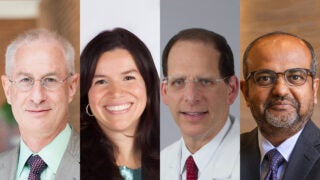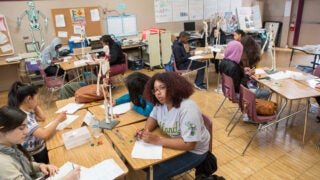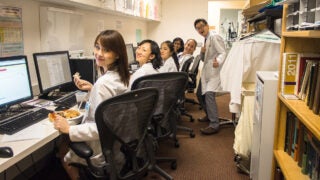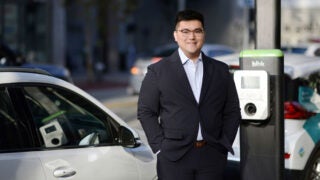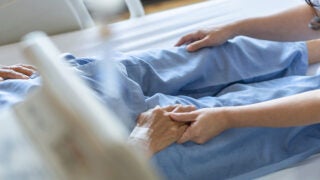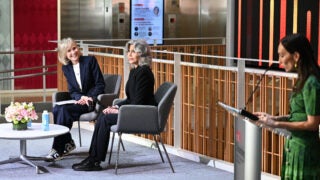EARTH MONTH: USC Dornsife’s Wrigley Institute for Environment and Sustainability will use the Ballmer Group gift to study decarbonization strategies
Science/Technology
News Listing
Loop, a based startup co-founded by USC alumnus Matt McKinney, leverages AI to digitize shipment data.
Honorees join more than 40 USC faculty as fellows of the American Association for the Advancement of Science.
USC scientists find that adolescents who grapple with the bigger meaning of social situations experience greater brain growth, which predicts stronger identity development and life satisfaction years later.
Researchers at the USC-based Statewide California Earthquake Center contributed models that forecast earthquake ruptures for the U.S. Geological Survey’s National Seismic Hazard Model.
The National Institutes of Health gave ophthalmologists Sun Young Lee and Benjamin Xu reason to celebrate.
Mathematician Paul Newton will use the prestigious fellowship to investigate cancer models; composer Nicolás Lell Benavides will complete several musical works.
EARTH MONTH: USC Price master’s student Dylan Qichen Di researched the market viability of smaller and more affordable electric vehicles.
USC-led study leverages artificial intelligence to predict risk of bedsores in hospitalized patients
The study presents a new model for predicting patients most at risk of bedsores in hospitals.
EARTH MONTH: The two-time Oscar winner inspired students during a wide-ranging conversation with USC Annenberg Dean Willow Bay.



